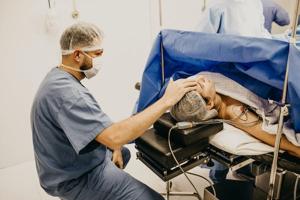Introduction
In the modern healthcare landscape, the notion of passive patient involvement is rapidly becoming a relic of the past. As patients, we often find ourselves at the center of our own healthcare journeys, navigating through complex systems and making critical decisions about our well-being. This shift emphasizes one crucial aspect: Staying Engaged: The Importance of Active Participation in Your Care is not just a catchy phrase; it's a vital component for achieving optimal health outcomes.
Engaging actively in your care means taking charge, asking questions, and collaborating with healthcare professionals. But what does this really mean? Let's dive into the depths of patient engagement and explore its significance in today's healthcare environment.
Understanding Patient Engagement
What is Patient Engagement?
Patient engagement refers to the process where patients actively participate in their own health care decisions. This includes being informed about treatment options, understanding personal health needs, and effectively communicating with healthcare providers.
Why is Patient Engagement Essential?
Active participation fosters better communication between patients and providers, leading to enhanced satisfaction and improved health outcomes. When patients are engaged, they’re more likely to adhere to treatment plans and make healthier lifestyle choices.
The Benefits of Active Participation in Your Care
Improved Health Outcomes
Research has shown that engaged patients often experience better health outcomes. They tend to manage chronic conditions more effectively and report higher levels of satisfaction with their care.
Statistical Insights
- According to a study by the Institute for Healthcare Improvement: Engaged patients have a 30% lower rate of hospital readmission. They are twice as likely to follow treatment plans.
Enhanced Communication with Healthcare Providers
When you take an active role in your care, you communicate more openly with your doctors. This leads to fewer misunderstandings and ensures that your concerns are addressed promptly.
Empowerment Through Knowledge
Knowledge is power! By educating yourself about your condition and treatment options, you feel empowered to make informed decisions about your health.
Barriers to Active Participation in Care
Common Obstacles Patients Face
Despite the advantages, many barriers prevent individuals from engaging fully in their healthcare:


- Lack of information or resources Fear or anxiety regarding medical discussions Cultural or language differences
How to Overcome These Barriers?
Understanding these challenges can help you develop strategies for overcoming them. For instance, seeking resources available through patient advocacy groups or using translation services can bridge gaps caused by language barriers.
Strategies for Staying Engaged: The Importance of Active Participation in Your Care
1. Educate Yourself About Your Condition
Knowledge helps demystify your diagnosis. Use reputable sources like medical journals or trusted websites like Mayo Clinic or WebMD for information.
2. Prepare Questions for Appointments
Before visiting your healthcare provider, jot down questions related to your diagnosis or treatment plan. This preparation ensures that you cover all necessary points during discussions.
Sample Questions You Might Ask:
- What are my treatment options? What side effects should I expect from my medication? How will this treatment affect my daily life?
3. Build a Strong Partnership with Your Healthcare Team
Your relationship with healthcare providers should be collaborative rather than hierarchical. Don’t hesitate to voice concerns and preferences; effective partnerships lead to better care planning.
Communicating Effectively with Healthcare Providers
The Art of Asking Questions
Effective communication is key when discussing your health concerns. Here’s how you can ask questions assertively:
- Use open-ended questions. Paraphrase what the provider has said for clarity.
Active Listening Techniques
Listening actively also plays an essential role in effective communication. Focus on understanding rather than just waiting for your turn to respond.
Tips for Active Listening:
- Maintain eye contact. Nod occasionally as feedback. Summarize important points back to the provider.
Real-Life Experiences: Stories from Patients Who Stayed Engaged
Case Study 1: John’s Journey with Diabetes Management
John was diagnosed with Type 2 diabetes two years ago but felt overwhelmed by his condition at first. However, after taking an active role—attending workshops and consulting nutritionists—he learned how diet impacted his blood sugar levels significantly. Today, he manages his diabetes effectively and feels empowered about his health choices!
Case Study 2: Maria’s Battle Against Cancer
Maria was initially passive during her cancer treatment but realized she needed to advocate for herself after feeling unheard by her oncologist. After researching her condition and asking pointed questions about alternative therapies, she collaborated closely with her medical team towards a tailored approach that suited her lifestyle better.
The Role of Technology in Patient Engagement
Telehealth Services
Telehealth offers convenience for consultations without geographical limitations—it allows continuous engagement even when physical visits aren’t feasible.
Benefits Include:
- Immediate access to specialists Lower travel costs Flexibility around busy schedules
Health Apps & Online Portals
Many hospitals now offer online portals where patients can access their medical records, schedule appointments, and message providers directly—making it easier than ever to stay engaged!
Building Support Systems for Patient Engagement
Family Involvement
Having family members involved can significantly enhance patient engagement! They can accompany you during appointments or provide emotional support throughout treatments.
Support Groups & Community Resources
Joining support groups helps connect you with others facing similar challenges—this shared experience can foster motivation and resilience!
FAQs About Staying Engaged: The Importance of Active Participation in Your Care
Q1: Why should I engage actively in my care?
Engaging actively allows you greater control over your health decisions leading potentially towards better outcomes!
Q2: How do I begin participating more actively?
Start by educating yourself about your condition; prepare questions before appointments; don’t hesitate speaking up during discussions!
Q3: Are there tools available that facilitate engagement?
Yes! Many hospitals offer online portals while telehealth services allow remote consultations enhancing flexibility & accessibility!
Q4: What if I feel intimidated by my doctor?
Remember that it’s okay! Building rapport takes time—practice assertive communication techniques such as paraphrasing responses back until clarity occurs!
Q5: Can my family help me become more engaged?
Absolutely! Involving family members provides emotional support along this journey creating accountability & motivation altogether!
Q6: Are there risks associated with too much self-research?
While knowledge is power excessive research could lead down https://blogfreely.net/paxtonbbxs/emergency-room-errors-when-medical-malpractice-occurs misinformation paths—always verify facts against reputable sources before making any health-related decisions!
Conclusion
As we conclude this exploration into staying engaged through active participation in one’s care journey—it’s evident that knowledge truly empowers us as patients! Remembering always that advocating for ourselves not only enhances our experiences but contributes significantly toward achieving optimal health outcomes forms an integral part within every aspect surrounding personal wellness today! So go ahead—take charge while forging those vital connections along this path ahead—you deserve nothing less than holistic quality care fitting perfectly into YOUR unique context!